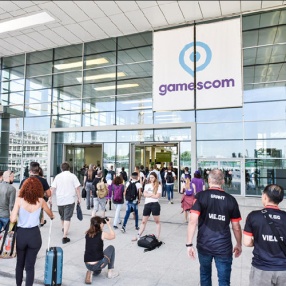After six days in Cologne with ample events, mixers, talks, interviews and Kolsch we have returned, mostly, unscathed and with wisdom to share.
There were industry experts aplenty to rub shoulders with this year as Devcom revealed that over 2,000 people turned up to attend the second annual developer-focused show.
Gamescom, on the other hand, also boasted some big digits with over 500,000 people pitching up. More specifically, 370,000 visitors from 114 countries showed up to attend, 31,200 were trade attendees.
Key insights
So, after searching the Koelnmesse venue high and low for scopes and stories here's five things we learned to keep you satisfied until we get round to that pile of interviews we've got sitting around.
From tips on how to break into Indonesia's mobile market to some numbers behind Facebook's Instant games, we learned a bunch!
Click here to view the list »

















